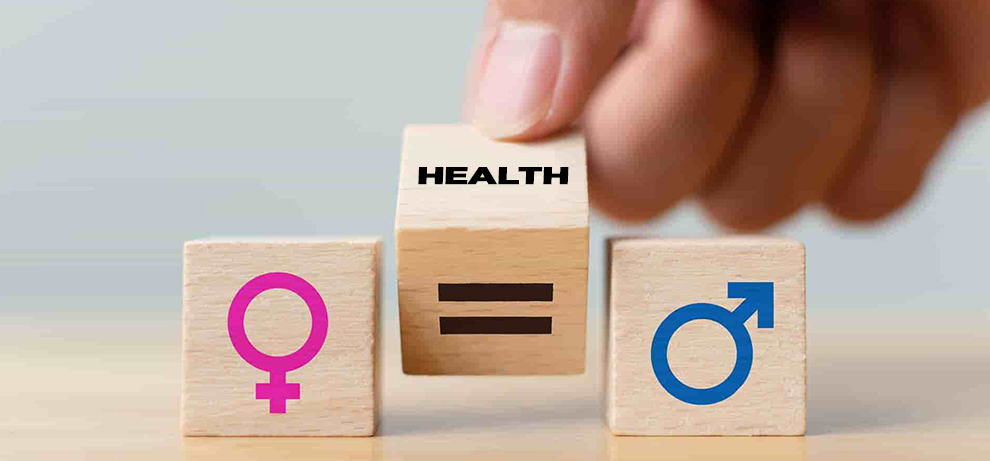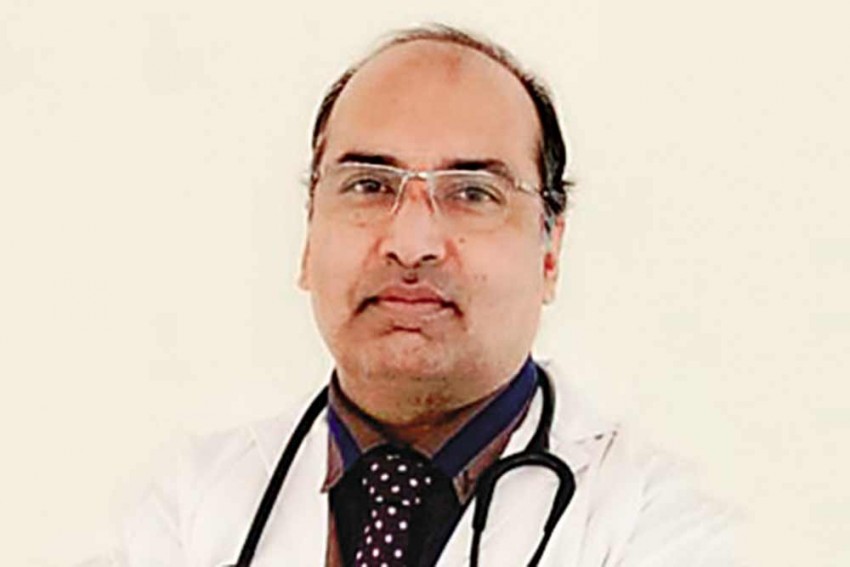Gender Gap In terms Of Health As Fundamental Right: A Physician’s Perspective.

As a medical practitioner, do you see a disparity between the importance given to men’s health and women’s health in India?
It is true that there is a disparity between the importance given to men’s health as compared to women’s health. Multiple factors come into play such as social considerations, housebound living, selective poverty and prioritisation of primary wage-earner over one who is a homemaker. Though homemakers enable wage-earners to earn, this is not perceived as an activity with value. Thus, women themselves consider the health and wellbeing of the earning member or higher-earning member as more important. This is a part of our socio-cultural conditioning and condition.
Women’s health has primarily been seen as women’s reproductive health. Can the gap that remains be addressed at the individual, medical practitioner level?
I agree that consideration of women’s health beyond women’s reproductive health needs to be dealt at the personal, family and physician level. For a long time, it has been considered that women are less prone to have cardio-vascular and other metabolic disorders and need less attention in the form of annual health check especially when they are apparently in good state of health. This is a result of over-estimation and over-emphasis of the protective effect of oestrogen which may protect or delay cardiovascular risk. But in this changing demography of work profile as well as use of tobacco and alcohol, the protective mantra of oestrogen effect seems negligible and early detection of cardiovascular diseases, diabetes, cholesterol-related disorders is becoming common. So people as well as healthcare professionals need to remove this bias as well.
The Slogan “Health for all” has been popularised by the World Health Organization for the last five decades – this envisions securing the health and well-being of everybody. This has not realized across the societies and the gap is even wider among the genders. One such story I can remember during the last COVID 19 pandemic. I came across the consultation of a couple (husband and wife) who were suffering from COVID 19 related illness. It was clear to me that the lady was more sick but she was continuously insisting for her husband to get admitted in the hospital saying “Unka swasth zyada zaroori hai” (his health is more important). In such situations, I as a healthcare provider, feel helpless and bound to think of social reforms. So I believe that healthcare facilities need to be increased at a higher pace as compared to what we observe today to fill the gap.

That gives us an important insight into women’s health issues. Your various engagements over the years must have given you this broad-based perspective.
Well, I have more than 15 years of clinical experience in the practice of Medicine. After my MBBS from DMCH, I completed my Post Graduation Degree (DNB General Medicine) from the National Board of Examination, New Delhi. I am a member of National Academy of Medical Sciences India, a Member of Royal College of Physicians, United Kingdom with partial fulfillment. I felt the need to understand the administrative aspects of healthcare and thus, did my MBA in Hospital Administration from Manipal University. As a result, I have seen the healthcare needs and practices of ur country from close quarters. Apart from trying to bring healing to my patients, I am particularly interested in public health and the ground-level implementation of public health policies in our country. Because, our profession is a vocation as well and requires passion and compassion.
Are there correlations between women’s health concerns and stress?
My response to this may not seem direct but it will give you an idea of what we see usually in day-to-day practice. It’s true that physical, emotional and psychological stresses play a major role in general well-being and disease processes which include Diabetes mellitus, Hypertension, Cholesterol-related disorders, Insomnia and many others. The direct effect of physical, emotional and psychological stressors on women cause conversion disorders leading to diagnostic dilemma and wrong treatments. This places direct burden on the healthcare system which I can feel as a specialist family physician.
Do nutrition-related health issues occur across the board for women, irrespective of socio-economic strata?
Yes, though causes vary from strata to strata. Poverty caused poor nutrition because of deprivation of balanced diet among certain sections while malnutrition caused by food fads and fad diets cause are common among affluent classes. Women in these sections of society often wrongly perceive their body and feel they have to conform to an ‘ideal’ body weight dictated by beauty standards rather than health standards. This can lead to severe malnutrition.
Can women take nutraceuticals and supplements for better care of their health?
Yes. Once these deficiencies have occurred, start affecting their wellbeing and become symptomatic, quick recovery becomes mandatory and help of nutraceuticals is essential in this case. I recommend Revital H Women as it is a good and trusted nutraceutical for that purpose along with balanced diet.
To achieve equality, India’s women need to be healthier. The way forward?
To achieve gender equality in terms of health as a fundamental right among others is of paramount importance. It can be only achieved by sincere efforts in policy-making by the governments at both Central and State levels which ensures provision of equal opportunity for education, provision of food and nutrition, access to healthcare facilities among many others. The slogan “Beti Bachao Beti Padhao” sounded promising in this regard but how much effective at ground level, remains a question.





